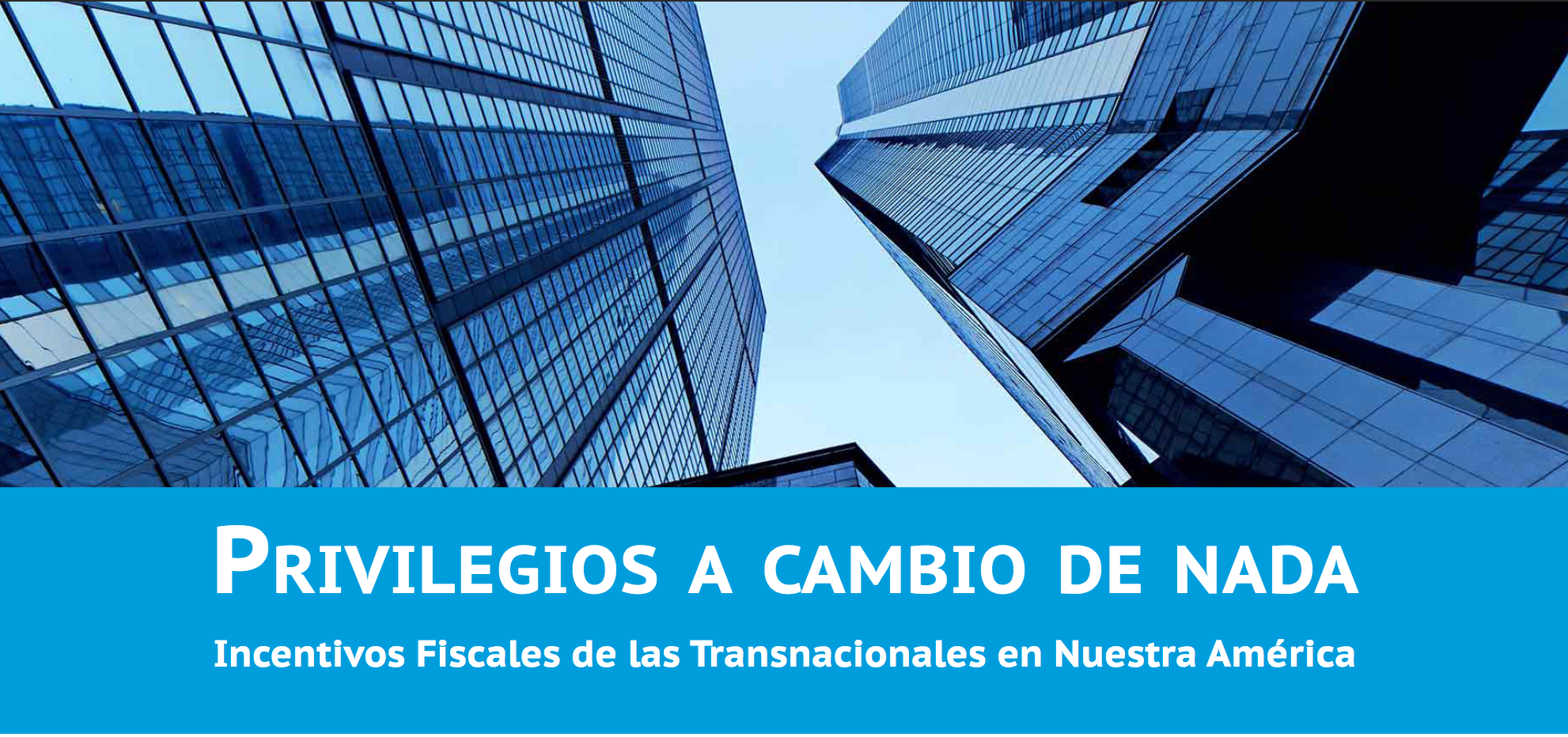The Latin American Network on Debt, Development and Rights (Latindadd in Spanish) just release its latest investigation, about Tax incentives, titled “Privileges in exchange of nothing – Multinational Corporations’ Tax Incentives in Our America”.
Investigating special tax regimes granted to large corporations in Latin America and the Caribbean, the study reveals that these investment policies have not guaranteed permanent capital flows or greater economic growth. Both economic variables were more related to the boom in raw materials than to the tax exemption, according to Latindadd.
Rodolfo Bejarano, a Peruvian economist and coordinator of research and studies at Latindadd, produced this systematic review of data and technical evidence. “We call those incentives Privileges, says Bejarano, because everyone realizes that these incentives are transformed into privileges for a few. We decided to work on the subject several months ago, starting from the last two debates of our biannual Multiactor Meetings, from which the need to work on tax incentives emerged”.
The report shows there is no direct correlation between the tax advantages granted by the Latin American States to the transnationals and the objectives of poverty reduction, inequality gaps and generation of decent employment.
“On the contrary,” argues Bejarano, “the greatest impact of these tax incentives on investment has been negative because the tax administrations stopped collecting billions of dollars. An annual tax expense of approximately 4.6 percent of the Latin American gross product is calculated due to this policy. All that money has stopped financing public services of education, health, housing, social protection, among others. In short, it would be an inefficient and regressive fiscal sacrifice. “
The research studies the validity of 337 tax incentives. Of these, 167 reduce or exempt the payment of income tax (IR) that corresponds to the benefited companies.
“Privilegios a cambio de nada”, published with the support of Oxfam, is available online and was presented for the first time in Buenos Aires, last Friday, in the IVth Assembly of the Red de Justicia Fiscal, a regional network member of the Global Alliance for Tax Justice.
The study will likely be translated into English.
For more information, you can directly contact Latindadd’s Rodolfo Bejarano.
